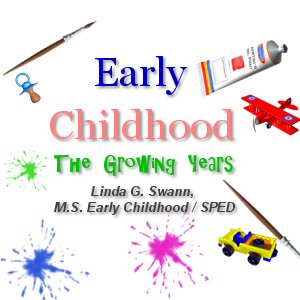A Separate View
 At what point in early childhood will your child begin to view himself/herself as separate from Mom and Dad, and is it natural? Yes, it is not only natural, but a desired social and emotional development, and you can help guide the new found independence. Your child’s growing independence from the family and interest in friends begins in middle childhood, ages 9-11. He/she will form stronger, more complex friendships and peer relationships. At this age it is emotionally important to have friends and peer pressure increases. As puberty approaches, body image awareness is present, school becomes more academic challenging, attention span increases and he/she begins to see other points of view.
At what point in early childhood will your child begin to view himself/herself as separate from Mom and Dad, and is it natural? Yes, it is not only natural, but a desired social and emotional development, and you can help guide the new found independence. Your child’s growing independence from the family and interest in friends begins in middle childhood, ages 9-11. He/she will form stronger, more complex friendships and peer relationships. At this age it is emotionally important to have friends and peer pressure increases. As puberty approaches, body image awareness is present, school becomes more academic challenging, attention span increases and he/she begins to see other points of view.
As a parent, you can help your child during this time. It is important to spend time with him/her, talking about friends, accomplishments, and challenges children face during this age. Encourage involvement in a group, join a sports team, or volunteer for a charity, and you become involved with your child’s school, and friends. Make clear rules and stick to them, making it clear what behavior you expect at all times. Provide reasons for rules. Be affectionate and honest, using discipline to guide and protect rather than punish. Help your child set goals, develop a sense of responsibility, and a sense of right and wrong. Talk about risky things like smoking or dangerous physical dares that friends might pressure him/her to try. Encourage respect for all things, help people in need, and teach how to handle disrespect from others. Talk about normal physical and emotional changes of puberty. And…use praise, helping your child be proud of accomplishments.
As young teens, ages 12-14, a mega of physical, mental, emotional, and social changes take place. Your child may be worried about these changes and how they are looked at by others. He/she may face peer pressure to use alcohol, tobacco, drugs and have sex. He/she will become even more independent, with a personality and interests of their own, making choices about friends, sports, studying, and school. There is even more concern with body image and they may go back and forth between high expectations and lack of confidence. Peer group influence is great, less affection is shown toward parents, and rude or short-tempered behavior is seen. Sadness or depression can lead to school problems, and alcohol/drug use. A stronger sense of right and wrong, and more complex thought patterns create an ability to better express feelings by talking.
As a parent, you can help your child by being honest and direct, respecting his/her opinions and really listening. Be interested in school activities and friends. Encourage him/her to make decisions using good choices. In a conflict, be clear about goals and expectations, but set resolution goals together. And…use praise.
Teenage years, ages 15-17, is a time of changes of how teenagers think, feel, and interact with others. During this time, relationships with friends are still important, but he/she will have other interests as well. There is a need for more independence and responsibility. There is less conflict with parents, and a deeper capacity for caring and developing more intimate relationships.
As a parent, you should talk with him/her about concerns, and pay attention to changes in behavior. Listen without judgment and respect his/her opinions. Show pride in accomplishments and efforts, and respect the for privacy. Talk about school and extracurricular interests and activities. Encourage involvement in community activities, and sports, music, theater, and art. Spend time together doing things you enjoy, and show affection. Allow him/her to use his/her own judgment, helping with advice and support. And don’t forget to use praise.











